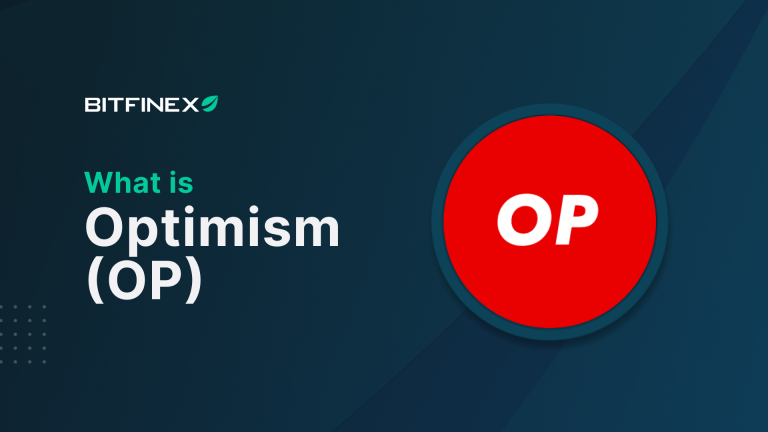April 03 What is optimism (OP)?
In code
Optimism is a collaborative initiative that aims to revolutionize the Ethereum ecosystem by offering a scalable, equitable, and decentralized digital infrastructure. The centerpiece of this effort is the Optimism Collective, a community-driven governance model that brings together companies, developers, and users in a unified pursuit of a more democratic Internet. This group is built on the principle of rewarding public goods and contributions that benefit the ecosystem, incorporating a new approach to digital governance where positive impact translates into individual profit. Underpinning this reimagining of the digital economy and governance structures is the Superchain, an essential network of interconnected blockchains that promises a more distributed power structure across the Internet.
Optimism's technical innovation is based on its Optimistic Rollup protocol, a scaling solution that enhances the security and decentralization of Ethereum while providing a platform for accelerated growth. By executing transactions on a separate layer and periodically publishing the data on Ethereum, Optimistic Rollups ensures data integrity and availability without the need to execute transaction data on the Ethereum mainnet itself. This not only reduces the burden on Ethereum, but also significantly reduces transaction costs and enhances throughput, making Ethereum accessible to a wider audience without compromising its core values of decentralization and security.
The Optimism architecture is designed to be modular and open source, ensuring it can serve as a strong foundation for a new, more inclusive and just digital economy. Through initiatives such as Retroactive Public Goods Funding, Optimism allocates a portion of transaction fees to fund projects and developments deemed beneficial to the greater good of the ecosystem. The public goods financing mechanism represents a shift towards a more sustainable and community-based economic model, where the value generated is redistributed within the ecosystem to support its growth and resilience.
The Optimism Foundation's commitment to fostering the development of Ethereum's collective and scalable values highlights a strategic approach that goes beyond technical scalability. By focusing on aligning economic incentives and prioritizing financing public goods, optimism not only improves transaction efficiency, but also paves the way for a more equitable and sustainable digital future. Through these efforts, Optimism embodies a visionary approach to blockchain technology, where scalability, security, and sustainability are orchestrated to unlock the full potential of Ethereum as a platform for decentralized applications and a cornerstone of the new internet.
What is OP code?
OP Token is the native utility token of the Optimism ecosystem, designed to serve as a key governance and operational component within the Layer 2 scaling solution built on Ethereum. Optimism leverages optimistic staking to increase Ethereum's scalability by enabling faster and cheaper transactions, all while inheriting the security properties of Ethereum's base layer.
OP is primarily used for governance purposes within Optimism Collective, allowing token holders to vote on major decisions, proposals, and protocol upgrades. This democratic process ensures that the development and future direction of the Optimism Network is guided by the community of users, developers and stakeholders. OP tokens are used to incentivize various behaviors within the ecosystem that contribute to its health, security, and growth. This includes rewards for developers who rely on Optimism, liquidity providers in Optimism's decentralized finance (DeFi) protocols, and other parties that actively participate in the network.
While specific details may evolve, OP tokens could be stored within the network as a mechanism to secure the network and participate in its economic activities. Stake holders may receive rewards in the form of transaction fees or other incentives, aligning the interests of token holders with Optimism's long-term success. Holding or using OP tokens could potentially provide reduced transaction fees to users on the network, making it more economical to interact with optimism-based applications. This use case directly benefits active participants and can lead to further adoption of the Optimism layer.
The Optimism Collective is an innovative governance model that aims to balance the interests of various network participants. Token House represents OP token holders who have a direct stake in the network. The Token House votes on decisions that affect the technical and economic parameters of the Optimism ecosystem. Citizen House focuses on funding public goods and projects that benefit the broader Ethereum ecosystem and community. This aspect confirms the commitment of the Optimism Organization to contribute to the sustainable development of public infrastructure necessary for a decentralized future.
OP Tokenomics

How to buy OP with cryptocurrencies
1. Log in to your Bitfinex account or register to create an account.
2. Go to the deposit page.
3. In the Cryptocurrencies section, choose the cryptocurrency you plan to buy OP with and create an Exchange wallet deposit address.
4. Send the crypto to the generated deposit address.
5. Once the funds arrive in your wallet, you can exchange them for OP. Learn how to trade on Bitfinex here.
How to buy OP with fiat currency
1. Log in to your Bitfinex account or register to create an account.
2. You need to get full verification to be able to deposit fiat currencies into your Bitfinex account. Learn about the different verification levels here.
3. On the Deposit page, under the Bank Wire menu, choose the fiat currency for your deposit. There are minimum fiat deposits on Bitfinex; Learn more here.
4. Check your registered Bitfinex email to get the transfer details.
5. Send money.
6. Once the funds arrive in your wallet, you can use them to buy OP.
We also have Bitfinex on mobile, so you can easily buy OP coin on the go.
[AppStore] [Google Play]
OP Community Channels
Location | x (Twitter) | Disagreement | github

